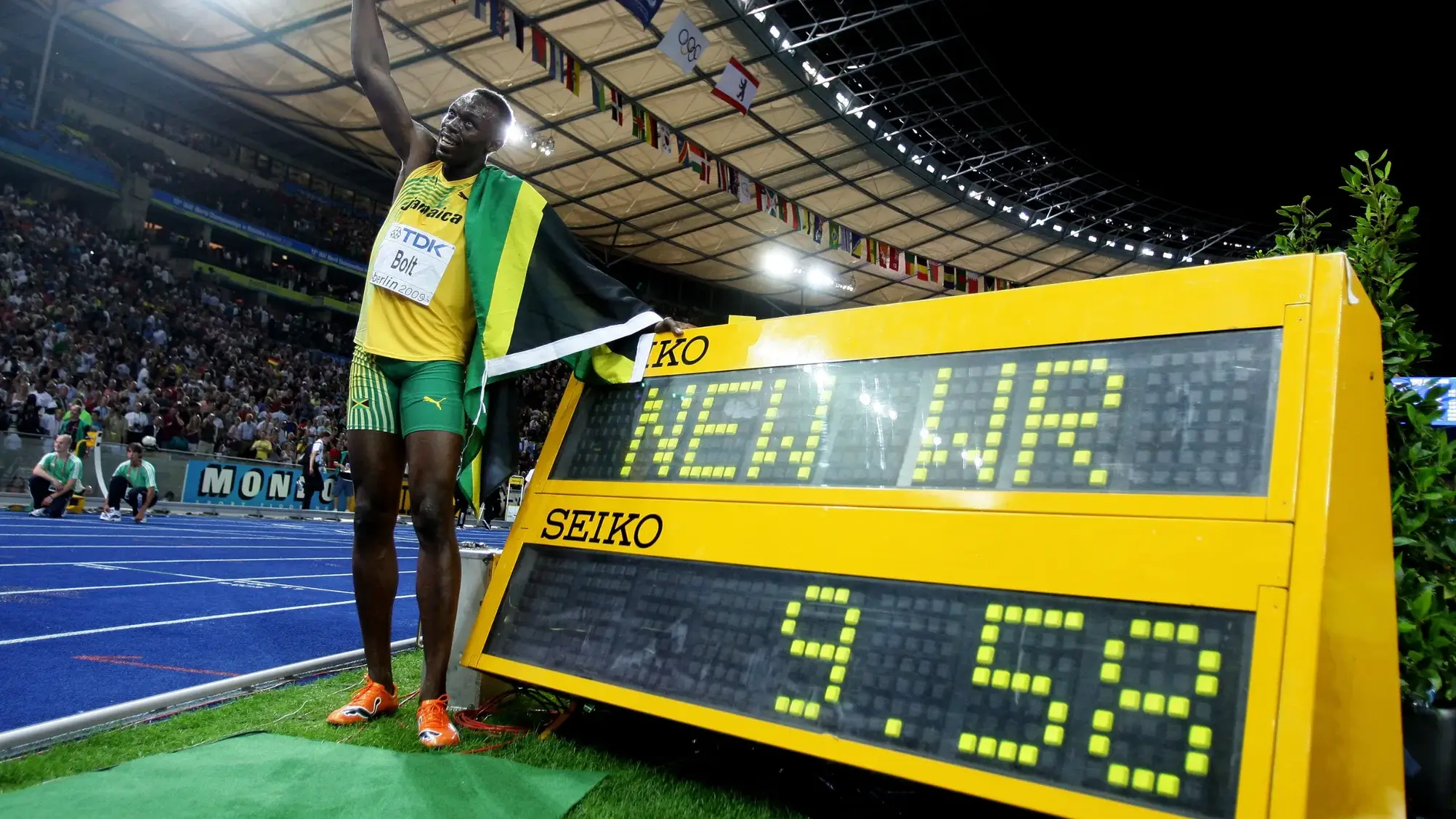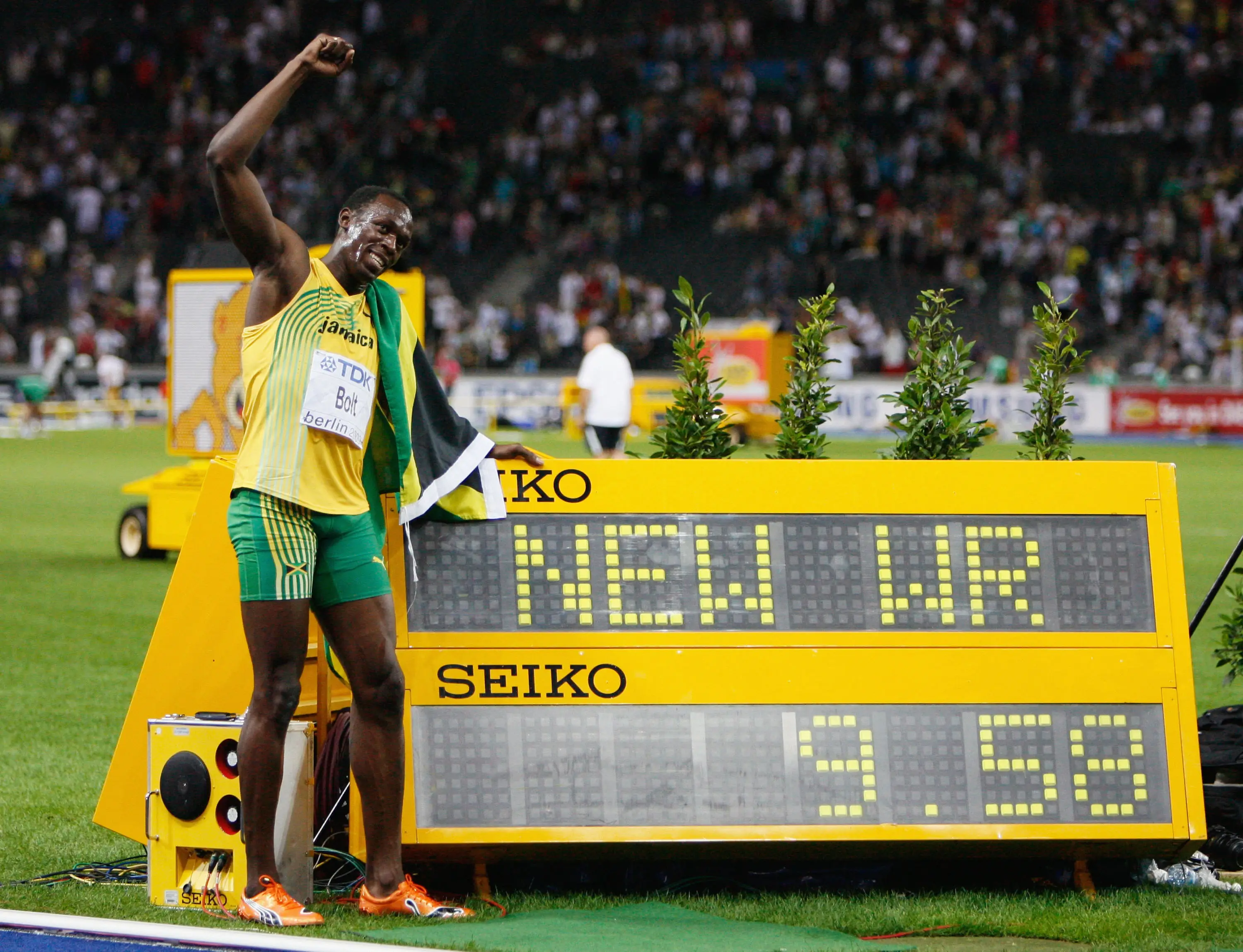
Usain Bolt's 100m world record has stood for more than 15 years and scientists have addressed the question of whether it will be broken.
Bolt has established himself as one of, if not the, greatest sprinters of all time thanks to his track exploits across three Olympic Games.
The Lightning Bolt announced his arrival on a truly global stage at the Olympics at Beijing 2008 by claiming gold in both the 100m and 200m events.
He then competed at London 2012 to win gold in both events once again, as well as being part of the victorious 4x100m Jamaican relay team to take his tally to five medals across only two Olympics.
Advert
And the now 38-year-old secured his legendary status by achieving yet another clean sweep in the same three events four years later at Rio 2016 to take his tally to an extraordinary eight Olympic golds, before retiring from sprinting the following year.
Bolt holds the world record in the 100m after breaking it a total of three times in the space of little over a year.
He first set the world record in May 2008 with a time of 9.72 seconds, taking the fastest time of 9.74 seconds away from fellow Jamaican Asafa Powell.
And Bolt set a new world - and current Olympic - record at Beijing 2008 with his gold medal winning time of 9.69 seconds.

And Bolt set the current world record a year later at the 2009 World Athletics Championships in Berlin with a time of 9.58 seconds - a time which still stands to this day more than 15 years on.
No other sprinter has run a time of under 9.70 seconds since 2012 and Noah Lyles' 100m final-winning time at Paris 2024 of 9.79 seconds is still two tenths behind Bolt's world record.
With that in mind, it begs the question of whether Bolt's world record time is likely to ever be surpassed, with the man himself even admitting he does not see it being beaten by the current generation.
But in 2022, scientists Polly McGuigan and Aki Salo theorised that Bolt's record could be broken in the future, and believe that a 100m time of under nine seconds may be possible to achieve.
However, they caveated this claim by stating that a mixture of genetics and training would be needed - meaning that time would not be even remotely possible for a number of generations.
Their findings read: "A combination of genetics and training would need to produce bum, thigh and calf muscles which are a little bit stronger and faster than the current best sprinters.
"A muscle with a high proportion of large, fast twitch muscle fibres will be able to generate larger amounts of force more quickly than a muscle with a lower proportion.
"It's safe to say that someone will break the nine second barrier - not necessarily in our lifetime, but it will happen one day."
Topics: Usain Bolt, Athletics, Olympics, Jamaica
